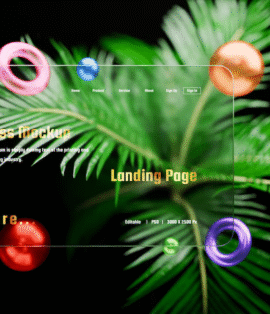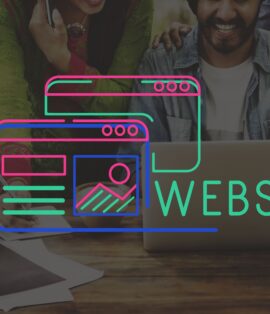
Startup Website Design: Building a Digital Presence That Fuels Growth
Launching a startup is exciting — but in today’s digital-first world, your website often serves as the first point of contact between your business and potential customers or investors. A well-designed website is more than just a digital brochure; it’s a powerful tool that can establish credibility, attract leads, and drive early traction.
In this guide, we’ll explore what makes great startup website design, what features to include, and how to make your online presence work for your business from day one.
Why Website Design Matters for Startups
Startups face fierce competition, and standing out means making a strong first impression. Your website is often where that impression is made. A professionally designed website helps:
- Build trust and credibility
- Communicate your mission and value proposition
- Capture investor and customer attention
- Convert visitors into leads or users
Without a compelling, user-friendly site, even the most innovative product can go unnoticed.
Key Features of a Successful Startup Website Design
Here are the must-have elements every startup website should include:
1. Clear Branding and Messaging
Your homepage should immediately answer: Who are you? What do you offer? Why should someone care? Use a powerful tagline, clean visuals, and consistent branding across all pages.
2. Mobile-Responsive Design
Most users will visit your website from mobile devices. A responsive layout ensures your site looks great and works seamlessly on all screen sizes.
3. Simple Navigation
Startups often have limited content, so keep navigation lean and intuitive. Stick to key pages like: Home, About, Product/Service, Blog, and Contact.
4. Strong Call-to-Actions (CTAs)
Encourage visitors to take action — whether it’s booking a demo, signing up for updates, or downloading a white paper.
5. SEO Optimization
Being found online is crucial. Use SEO best practices — fast loading speed, proper HTML structure, and keyword-optimized content — to help your site rank on Google.
Best Website Platforms for Startups
While many startups opt for custom-coded websites down the line, most begin with flexible, scalable platforms. Popular choices include:
- WordPress – Great for content-heavy or SEO-focused startups
- Webflow – Design flexibility for visually creative startups
- Shopify – Ideal for ecommerce-focused startups
- Wix or Squarespace – Quick setup for MVP or lean startups
Affordable Website Design for Startups
Startups often operate on tight budgets. Thankfully, professional design doesn’t have to break the bank. Many agencies now offer:
- One-page startup websites
- Launch-ready templates
- Pay-as-you-grow options
- Monthly maintenance & hosting packages
Outsourcing to a web design agency experienced in working with startups can save time and deliver real ROI through performance-focused design.
Tips to Maximize Website Impact
Here’s how startups can get the most out of their website:
- Include social proof: Testimonials, media mentions, or client logos can build trust.
- Use analytics tools: Track visitor behavior with Google Analytics to guide improvements.
- Start a blog: Publish helpful content to drive organic traffic and demonstrate expertise.
- Collect leads: Use forms, popups, or gated content to build your email list early.
Conclusion
A startup website is more than just a page on the internet — it’s your 24/7 brand ambassador. Investing in a professional, conversion-friendly design will give your startup a competitive edge, set the tone for future growth, and help you connect with the right audience from day one.
FAQ: Startup Website Design
Q1: How long does it take to build a startup website?
A: Typically 2–6 weeks depending on complexity, branding needs, and content readiness.
Q2: What pages should a startup website include?
A: At minimum: Home, About Us, Product or Services, Blog (optional), and Contact.
Q3: Can I update the website myself later?
A: Yes. Platforms like WordPress allow easy content updates without needing coding skills.
Q4: Is SEO really important for startups?
A: Absolutely. SEO helps your startup get discovered online by potential customers and investors organically.
Recent Posts
- 10 Inspiring Website Design Examples You Can Explore Online for Free
- 7 Best Platforms for Website Design Free – Build Without Limits
- 10 Powerful Website Design Ideas to Inspire Your Next Project
- Tradies Website Design: Build Trust and Get More Jobs Online
- Optometrist Website Design: Grow Your Practice with a Modern, Patient-Friendly Website




Comments are closed